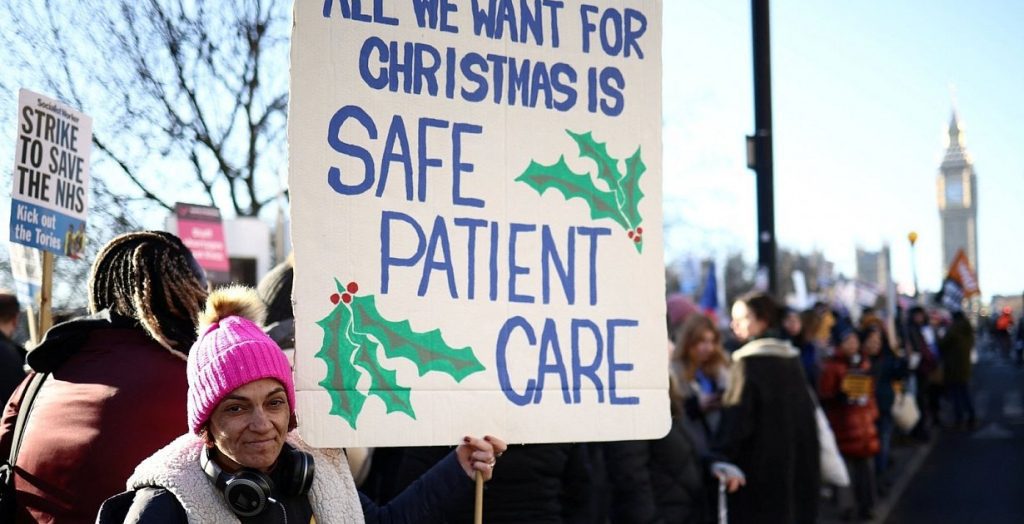After several days of strikes in the railways and postal service, the current wave of industrial strikes in Britain has now reached the National Health Service (NHS). On Thursday, 100,000 nurses paralyzed clinic operations in large parts of England, Wales and Northern Ireland for 24 hours.
It was the first ever strike in the 100+ year history of the Royal College of Nurses, as the UK Nurses Union demanded “fair pay” for its members. A second strike is scheduled for next Tuesday. The Royal College has already made it clear that as long as the Government refuses to enter into collective bargaining, there will be further and increasingly frequent strikes after Christmas.
An exacerbation of the situation is likely to lead to the strike planned for next Wednesday by ambulance drivers. Police, army and taxi drivers get ready to take over rescue operations and transport patients. Other hospital staff – technicians, porters, catering teams, clerks and residents – are also considering going on strike. This heralds even more difficult times for the already severely battered British healthcare system. In the past, patients often had to wait hours in the emergency room before they could get help. Millions of patients are waiting months for surgeries and private treatment appointments because the NHS is unable to meet their needs.
According to the government, an additional 70,000 clinic and surgery appointments must be cancelled, as a result of the two days of strike. “Essential services” such as dialysis, chemotherapy, or other types of cancer treatment are maintained even during strikes. However, “normal operation” is downgraded to emergency service.
Premier offers four percent
It is with a heavy heart that her organization has decided to take action,” said Pat Cullen, general secretary of the Royal College of Nurses. But the financial emergency, the permanent excessive demands, and the mass exodus of nurses now left its members “no other choice”. Cullen justifies the 19 per cent wage increase claim by saying that real wages for British nurses have fallen by a similar amount over the past ten years. Meanwhile, with an inflation rate of nearly 11%, the majority of the nursing staff could no longer afford the day-to-day living expenses. And the government refuses even to enter into negotiations with the unions. Meanwhile, Prime Minister Roshi Sunak is backing away from the argument that a wage increase of more than 4 percent cannot be funded because the government needs to focus on fighting inflation. However, many British experts have now rejected this argument.
Prominent conservatives also urge the government to at least seek dialogue. Sir Jake Perry, recently leader of the Conservative Party, believes the government will have to increase its bid “by a great deal” in order to find a solution.
The Scottish government, which independently runs its part of the NHS, has offered nurses there a 7.5 per cent pay rise. There are no strikes in Scottish clinics as NHS workers consider this offer.
Meanwhile, the wave of strikes continues in more and more regions. Border officials, Heathrow baggage handlers, driving examiners, firefighters, university lecturers and teachers have also declared or are voting on strikes.

“Food practitioner. Bacon guru. Infuriatingly humble zombie enthusiast. Total student.”







More Stories
“Classes for the disabled”: The La Liga Party candidate raises a scandal
Pope Francis visits the Venice Art Biennale
Madrid is on its feet: supporters want Sanchez to stay